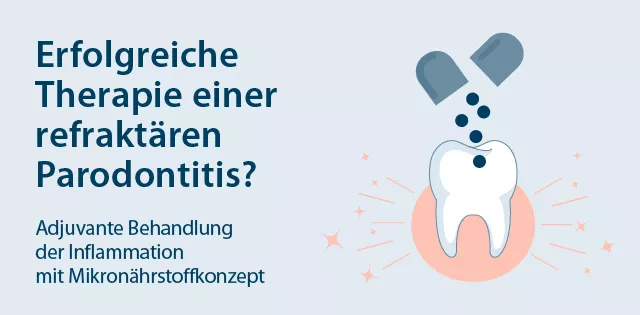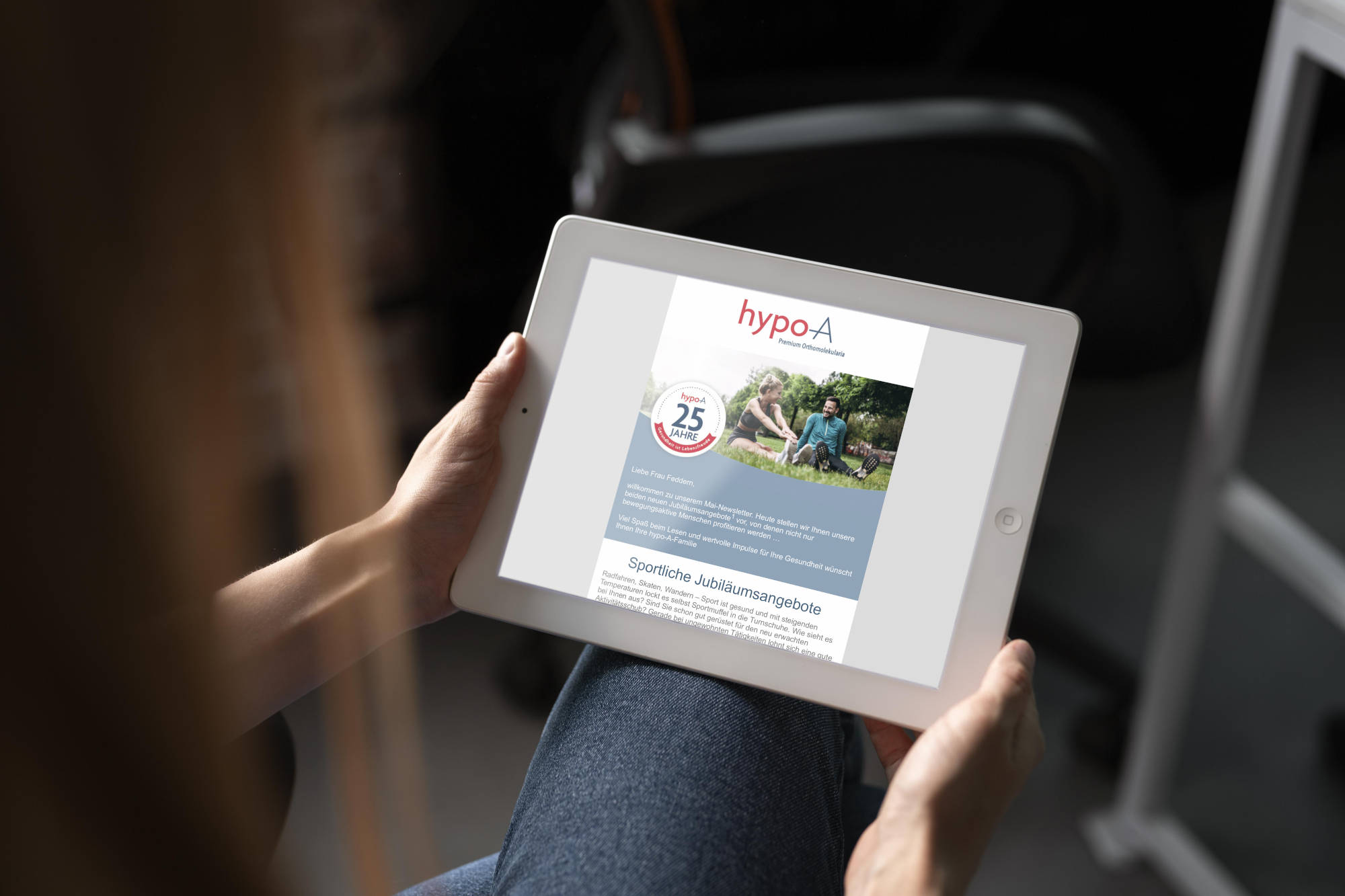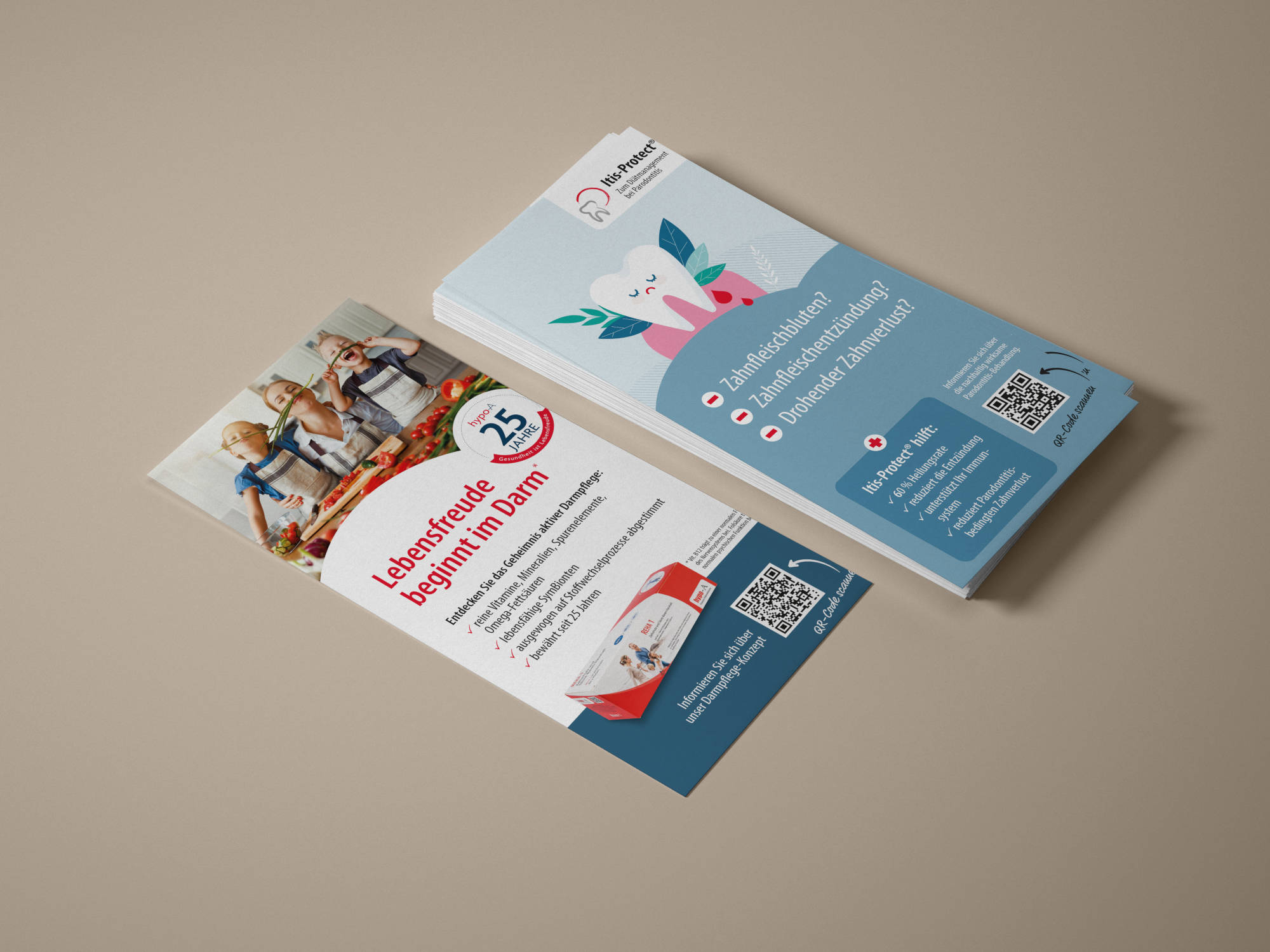17/06/2024
Periodontitis - causes & treatment with micronutrients
Almost every second adult in Germany has periodontitis. What many people are not aware of is that periodontitis affects our health far beyond the mouth and increases the risk of many “inflammatory diseases” such as diabetes and arteriosclerosis. Basic treatment therefore not only protects the teeth, but also benefits the entire body.
The good news: Everyone can take action themselves. If you want to fundamentally cure periodontitis, you should include the entire body, the immune system and the intestines.
The holistic dentist, periodontist and study author Dr. med. Dent. Heinz-Peter Olbert reveals how this can be achieved and what role our diet plays in our interview.
Interview with Dr. Med. Dent. Heinz-Peter Olbertz
As a holistic dentist, you look beyond the mouth. What does that mean for you?
The oral cavity is more than a “box full of teeth”. It is at the same time a mirror and indicator of the condition of the entire organism.
You have been working as a dentist in your own practice since 1997. How has the view of periodontitis changed since then?
Periodontitis is neither an infectious disease nor a direct result of poor dental care. Rather, it is an immunological disease with a genetic component. The cause and driving force is a subthreshold systemic inflammation (low grade inflammation, silent inflammation), which affects far beyond the oral cavity.
What does periodontitis mean – for the teeth and for the whole person?
Periodontitis can not only lead to tooth loss. It is also a high-risk factor for systemic diseases, i.e. diseases affecting the entire body, such as diabetes, stroke, Alzheimer's and cancer. This also makes it a valuable warning signal that, in my opinion, deserves much more attention.
Are you seeing any changes in your periodontitis patients?
Around 35 million people are now affected by periodontitis. The likelihood of developing periodontitis increases with age. But it seems that in recent years younger patients have also become increasingly ill with it.
Why is that?
The most important factor is clearly nutritional deficiencies. Most people today eat far too much sugar, too many trans fats and too many highly processed foods. At the same time, vitamins, trace elements such as zinc and omega-3 fatty acids are missing. This changes our intestinal microbiome: useful intestinal bacteria are increasingly on the decline, so that pathogenic bacteria can spread more easily in the intestine. A healthy bacterial balance in the intestine is incredibly important for digestion, our nutrient supply and the care of our intestinal mucosa. Incorrect colonization (dsybiosis) in the intestine leads to a “leaky gut”. The result is inflammation of the mucous membranes and oxidative stress, which in turn puts strain on the entire body.
Another point is the omnipresent psychosocial stress, which leads to higher nutrient requirements and weakens our immune system.
In your lectures you emphasize the role of silent inflammation in oral health. Why?
The environment is crucial. For me, an important thought leader in this regard is the French doctor and researcher Claude Bernard. Already in the 19th century he recognized how important the inner environment is. This is exactly what Silent Inflammation is all about. Systemic inflammatory messengers are constantly activated in the body, which (due to diet) are counteracted by too few inflammatory messengers. As a result, a subthreshold inflammatory state develops throughout the body, which sooner or later also affects the immunological stability in the mouth.
Where does this silent chronic inflammation come from?
The pivotal point is the intestine. My master's thesis on periodontitis1 also showed this. Basically, the oral mucosa is a mirror of the intestinal mucosa. If the intestine is sick, becomes leaky and more pathogenic bacteria settle in it, this also affects the oral mucosa. So you could say: “from leaky gut to leaky gum” – from leaky gut to leaky gums.
If the intestines are so important, what role does our diet play in the development and treatment of periodontitis?
Diet is the decisive factor.Our modern diet with fast food, lots of trans fats and saturated fatty acids, preservatives, flavor enhancers, artificial flavors, etc. simply no longer corresponds to our genetic profile. Our metabolism is not designed for this. At the same time, important nutrients are missing. When it comes to omega-3 fatty acids alone, this affects around 70 percent of the population.
Therefore, advise your periodontitis patients to take nutritional supplements...
Exactly. Dietary supplements are not a replacement for a healthy diet, but they can provide some balance.
Many nutrients are lost due to modern agriculture and industrialized food production. Just think of fruit that is harvested unripe and transported long distances or type 405 flour, which only contains a fraction of the original minerals.
In combination with a lack of exercise, stress and environmental toxins, our current diet leads to an increase in the accumulation of acids - as with inflammation. I also see osteoporosis in this context. For a better balance in the acid-base balance can be taken care of primarily through an alkaline diet – plus nutritional supplements if necessary.
Another important point is the loss of species. The fewer different plants, bacteria, etc. we eat, the lower the biodiversity in the intestine and the more unstable our intestinal microbiota becomes. I find fermented foods particularly exciting in this context. Before refrigerators and cans found their way into our kitchens, our ancestors were busy fermenting sauerkraut and other vegetables. This not only ensured a longer shelf life, but also a lot of life in the form of fungi, lactic acid and other bacteria in the food. A real treat for the intestines! The current trend towards self-fermentation, which I have been observing for some time now, is all the more pleasing.
Which micronutrients and symbionts do you recommend to your patients for periodontitis?
In my opinion, omega-3 fatty acids from fish and algae oil as well as the development of the acidifying flora are particularly important. So lactobacilli, bifidobacteria, etc., which use acidic metabolic products such as lactic acid, acetic acid and other short-chain fatty acids to help maintain the pH value in the colon in a healthy, slightly acidic range.
I also recommend magnesium and calcium in particular. Best as carbonate, such as in the study-tested balanced diet Itis-Protect® is included.
A less well-known phenomenon is peri-implantitis...
If the periodontium in the area of implants is inflamed, we speak of peri-implantitis. Periodontitis and peri-implantitis are essentially the same, but the titanium used in most implants promotes inflammation in the surrounding tissue. At the same time, the implant integrated into the jawbone - unlike a tooth - lacks the periodontium that anchors it stably in the jaw. Therefore, peri-implantitis progresses much faster than periodontitis. Accordingly, there is little time left for treatment to save the implant.
How important is it for dentists and patients to develop an awareness of the connection between oral and general health?
That would be extremely important! With the oral cavity as a mirror of health, dentists - or perhaps we should rather speak of oral doctors - have an incredibly valuable tool in their hands for early detection and primary diagnostics, the potential of which is far from being exhausted.
What would be your wish for the future?
That doctors and members of other health professions work more closely together across the various specialist areas in the spirit of integrative medicine and develop a holistic view of the patient beyond their own horizons.
Thank you very much for the interview, Dr. Olbertz!
Literature
- Olbertz H-P: Orthomolecular substitution in periodontitis and regulatory disorders - a monocentric reproducibility study. Thesis for obtaining the degree of Master of Science at the Interuniversity College for Health and Development, Graz 2005

Kostenloses Online-Seminar
Erfolgreiche Therapie einer refraktären Parodontitis?
Für Zahnärzte, zahnmedizinisches Fachpersonal, Therapeuten und interessierte Laien
Dr. med. dent. Heinz-Peter Olbertz, Mikronährstoffexperte, Fachreferent für systemische Parodontologie und CMD, gibt studien- und erfahrungsbasiert Einblicke in die Bereiche Parodontitis und Itis-Protect®, eine Begleittherapie bei Parodontitis.
Termin: 28.08.2024































